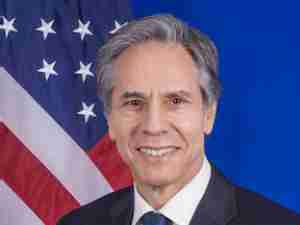Assistant US Trade Representative for Africa Florizelle Liser said some countries, including African cotton producers, had focused on ending US subsidies, but still faced serious supply-side obstacles to competing in a global market.
Liser said agricultural producers in many countries were struggling with declining yields, unwieldy state monopolies and middle-men who squeezed producers by imposing prices on farmers and delaying payment for goods received.
"These are issues that have nothing to do with subsidies ... If you don't focus on these other issues and challenges, when the subsidies end, you will not benefit," Liser said on the sidelines of a meeting in Senegal on Washington's preferential trade plan for Africa.
With notable exceptions such as east Africa, African countries' efforts to break down tariff barriers and bureaucracy across their borders have made slow progress.
Poor infrastructure and inefficiency and red tape at ports all hamper trade.
African countries have focussed their international lobbying on getting countries such as the United States to abolish subsidies supporting their own farmers.
The Group of Eight rich countries committed this month to ending agricultural subsidies, but gave no timetable.
US officials have said that will only come from the successful conclusion of the World Trade Organization (WTO) Doha round, due to be concluded in 2006.
Liser said that given the United States, European Union, Japan, Canada and Australia already had preferential trade deals for poor nations, the biggest WTO dividend for African countries would be unfettered access to fellow developing economies.
"It (the advantage) will really come from having greater market access among developing countries -- such as China, India and Brazil," she said in an interview.
BOOST INTER-AFRICAN TRADE
African countries should also seek to accelerate regional integration and trade through regional trade blocs such as those in East, West and southern Africa, Liser said, saying trade between states in Africa was lower than internal trade in any other continent.
"The countries that have made the most progress in global markets are those who first became competitive within their own regions," she said.
Liser was speaking on the sidelines of a meeting with the 37 countries eligible for Washington's African Growth and Opportunity Act (AGOA), which aims to help poor African countries trade their way out of poverty.
She said trade under the deal was still overwhelmingly dominated by oil -- which accounted for all but $3.5 billion of the $26.6 billion AGOA exports to the United States in 2004.
Liser said efforts to expand non-oil exports were making progress, citing jumps in shipments of South African oranges and Malawian macadamia nuts to the United States since AGOA began in 2000.
US experts were working with fish processors in Senegal, Mauritania and Gambia to grow the US share of their exports, which currently go mostly to the European Union, she said. (Reuters)










